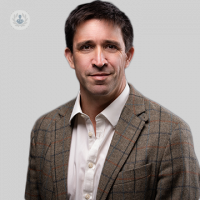Neck lumps: when are they cancerous?
Autore:Neck lumps are not just unsightly, but they can potentially be dangerous. With over 12,000 cases of neck cancer each year in the UK alone, they can feel concerning. Symptoms that often accompany neck lumps include discomfort or irritation, trouble swallowing, numbness, or fatigue.

We recently spoke with Professor Stuart Winter, a highly experienced consultant ENT surgeon who focuses on the treatment of neck lumps, to discuss how you can tell if they’re benign or cancerous. If you’re experiencing neck lumps (or other symptoms associated with them), we recommend having a read of this latest article to find out the answers to some FAQs related to this common but concerning phenomenon.
How common are neck lumps?
They are extremely common.
Are most neck lumps cancerous?
In adults there is a possibility that a neck lump is a form of cancer. This is much less likely in children. Therefore, in adults it is advisable to see a specialist as soon as possible.
What else could a neck lump be?
There are a large number of causes of a neck lump, not cancer. These include lymph nodes that increase in size due to infection, salivary glands that have become inflamed, or due to a blocked drainage pathway.
Do cancerous neck lumps move?
In general, a cancerous neck lump remains where it is. Most cancerous neck lumps are not painful.
What does a cancerous neck lump feel like?
It is very hard to generalise. If it is an advanced cancer however, the lump will usually feel hard and have an irregular edge. However, it is much better to diagnose a cancer before it reaches this stage, as they are much more treatable.
Can the location of a neck lump suggest cancer?
Not really.
When should I talk to a doctor about my neck lump?
The general advice is to see a doctor if the lump has been there for more than three weeks, but it any case, if you are concerned, see a doctor.
How does a doctor examine neck lumps?
The initial examination, involved examining the neck, but you also need a comprehensive examination of your nose, mouth and throat. This is best done by an experienced ENT doctor. After that, a needle test to take some cells from the lump may be needed. You may also need some imaging investigations, MRI, CT or USS, and you may potentially need to have some blood tests done.
For more information regarding neck lumps, you may like to speak with a leading ENT specialist such as Professor Stuart Winter. Click here to visit his profile and find out more information regarding his practice, including his appointment availability.


